#crm system software
Explore tagged Tumblr posts
Text
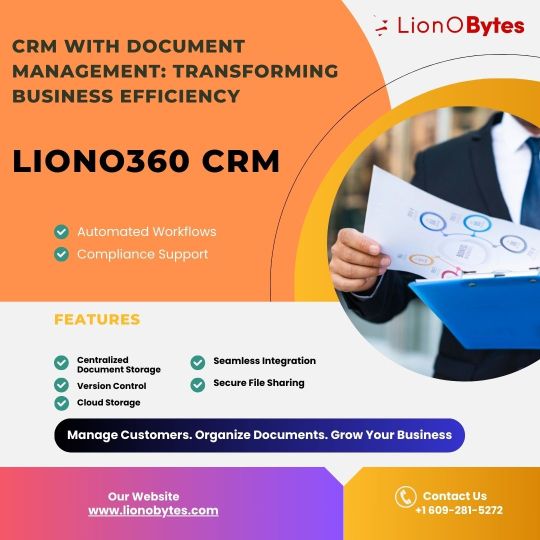
LionO360 CRM with Document Management streamlines workflows, centralizes files, boosts collaboration, and secures data—all in one powerful platform.
#CRM With Document Management#CRM Demo#DEMO CRM#CRM SYSTEM SOFTWARE#FUTURE CRM#CRM FOR SMALL BUISNESS
0 notes
Text
Unlocking Success: How CRM Software Transforms Retail Excellence
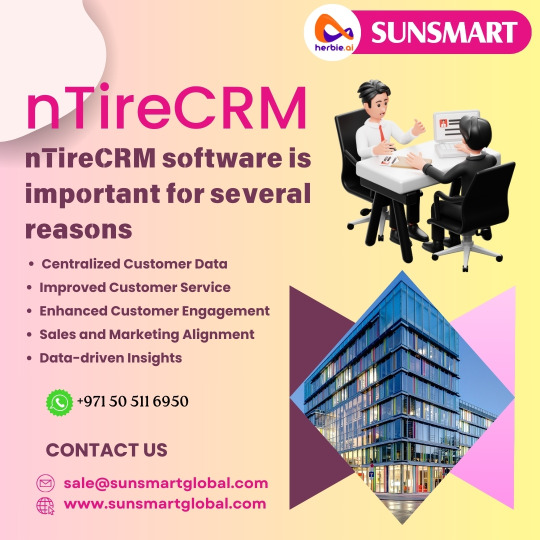
Centralized Customer Data: CRM software aggregates customer information from various touchpoints, including in-store purchases, online interactions, and loyalty programs, providing retailers with a comprehensive view of each customer's preferences and behavior.
Personalized Marketing Campaigns: Armed with insights from CRM data, retailers can create targeted marketing campaigns tailored to individual customer preferences, leading to higher conversion rates and increased customer loyalty.
Efficient Inventory Management: CRM systems enable retailers to track inventory levels in real-time, anticipate demand, and optimize stock replenishment processes, reducing out-of-stock situations and maximizing sales opportunities.
Enhanced Customer Service: With access to customer data and interaction history, retail staff can provide personalized assistance, address customer inquiries promptly, and resolve issues effectively, fostering positive customer experiences and loyalty.
Insightful Decision-Making: CRM software provides retailers with valuable analytics and reporting tools, allowing them to analyze trends, forecast demand, and make data-driven decisions to optimize operations and drive business growth.
Improved Customer Engagement: By leveraging CRM capabilities for targeted communication and personalized offers, retailers can engage customers across multiple channels, enhancing brand perception and fostering long-term relationships.
About Sunsmart’s NTIRECRM
In the retail sector, ntireCRM likely plays a crucial role in helping businesses effectively manage customer interactions, personalize marketing efforts, optimize inventory management, and enhance overall customer satisfaction. By providing retailers with valuable insights into customer preferences, purchase history, and behavior patterns, ntireCRM enables targeted marketing campaigns, efficient sales processes, and proactive customer service initiatives.
Contact Us:
· Whatsapp: +971 50 511 6950
· Mail:[email protected]
· Website: www.sunsmartglobal.com | https://tinyurl.com/ntirecrm
Follow us:
· Twitter - https://twitter.com/home
· Instagram - https://www.instagram.com/sunsmartglobal/
· Linkedin - https://www.linkedin.com/in/sunsmart-global-1b68a6143/
· Facebook - https://www.facebook.com/
0 notes
Text
#best CRM software#customer relationship management software#Top CRM Software#crm software in Vadodara India#best crm system for small business#best crm software for small business in India#crm system for small business#crm system software#crm system
0 notes
Text
Best CRM solutions for small business

Finding your first few consumers is often the toughest initial barrier for small businesses. best CRM software in India However, after the initial influx of consumers begins, it can be challenging and time-consuming to manage your current clientele while funneling new ones through your funnel. Some small firms are so busy rushing to fulfill deadlines and customer expectations that they haven't even invested in funnels yet.
CRMs can help with that. Small business CRM software aids businesses in streamlining their sales processes and expanding their clientele.
What makes a great CRM solution, why every small business should use one, and which software is best for your company's needs will all be covered in this article.
#crm software#best crm software in india#marketing automation tools#sales crm software#lead management software#crm lead management software#marketing automation tools in india#top crm software in india#crm software companies in india#crm system software
0 notes
Text
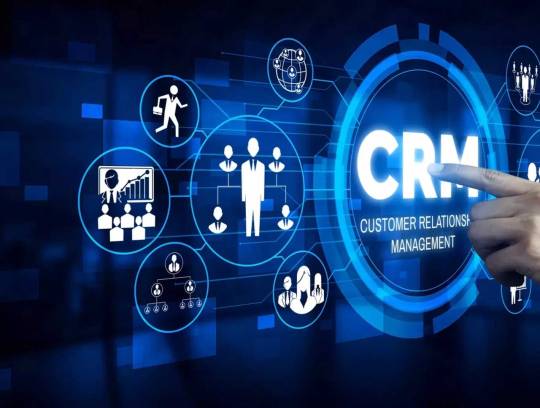
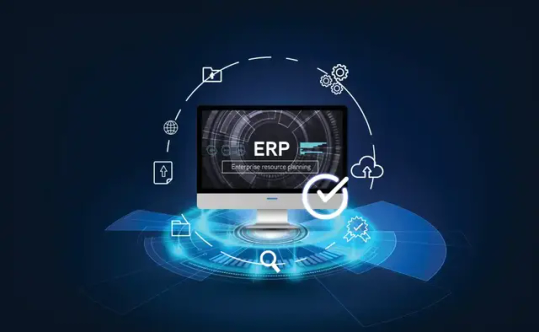
Best ERP and CRM Software Company in India | JRS Dynamics Info Solutions
Looking for reliable ERP and CRM solutions? JRS Dynamics Info Solutions is your go-to partner for streamlining business operations and driving growth.
Why Choose JRS Dynamics? ✅ End-to-End ERP Solutions ✅ Advanced CRM Systems ✅ Industry-Specific Customizations ✅ Implementation, Support & Upgrades
JRS Dynamics, we deliver cutting-edge technology to help businesses in India thrive in a competitive landscape.
Explore our services at: https://jrsdynamics.com/
Empower your business with the best ERP and CRM solutions from JRS Dynamics!
#crm#crm software#crm solutions#crm management software#erp#erpsoftware#dynamics365#erp solutions provider#digitaltransformation#businessmanagement#businessgrowth#businesssolutions#microsoftdynamics365#erp system#softwaredevelopment
2 notes
·
View notes
Text
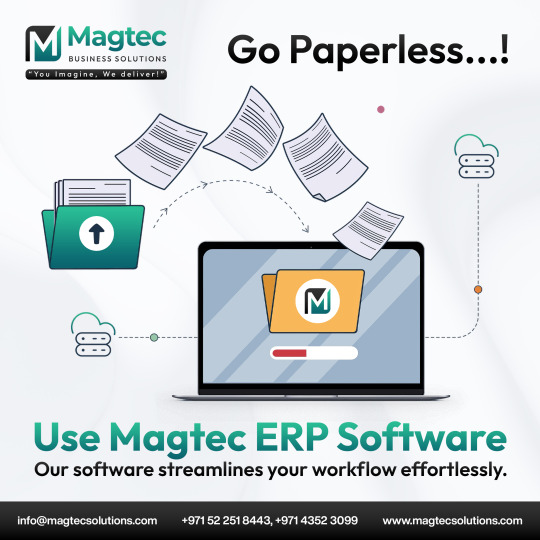
Tired of paper piles? 🚫 Go paperless with Magtec ERP Software! 💻 Streamline your workflow and boost efficiency. It's time to embrace the digital future.
#erp#business#software#management#automation#enterprise#resources#planning#solution#system#cloud#industry#finance#accounting#supplychain#inventory#crm#hr#manufacturing#distribution#retail#healthcare#education#hospitality#smallbusiness#mediumenterprise#largeenterprise#magtecerp#magtec#magtecsolutions
3 notes
·
View notes
Text
Erpnext is a Oman VAT erp system in Muscat Oman
#erp software#erp solution#best erp for small business 2024#erp systems#marketing#finance#accounting#crm software
6 notes
·
View notes
Text
The Future of Learning: A Deep Dive into Education ERP Innovations
In today's fast-paced world, the landscape of education is constantly evolving. Technological advancements have revolutionized the way we learn, and one of the most significant innovations in the field of education is the advent of Education ERP (Enterprise Resource Planning) systems. These sophisticated solutions are reshaping the future of learning by streamlining administrative processes, enhancing communication, and providing a more personalized educational experience.
What is Education ERP?
Education ERP refers to a comprehensive software solution tailored to meet the unique needs of educational institutions. It integrates various functions like admissions, student management, finance, human resources, and academic management into a single platform. This integration empowers schools and universities to efficiently manage their operations, resulting in enhanced productivity and a more immersive learning environment.
Streamlining Administrative Processes
One of the primary advantages of Education ERP innovations is the automation of administrative tasks. From student admissions to fee management and timetable scheduling, these systems simplify and expedite the often complex processes that educational institutions face. This streamlining not only saves time but also minimizes human errors, ensuring a smoother operation.
Enhancing Communication
Effective communication is at the core of any successful educational institution. Education ERP systems provide a centralized platform for communication between teachers, students, parents, and administrative staff. This seamless interaction fosters collaboration and understanding, leading to a more supportive and connected learning community.
Personalizing Education
Education ERP innovations enable the personalization of the learning experience. With data analytics and insights, educators can tailor their teaching methods to meet the unique needs of each student. This personal touch enhances engagement and ensures that no one falls through the cracks in the educational system.
Bursting the Bubble of Traditional Education
Traditional educational systems have long been criticized for their one-size-fits-all approach. Education ERP systems burst this bubble by introducing a new era of individualized learning. This innovation allows students to learn at their own pace, explore their interests, and receive the support they need to excel.
The Future of Learning Management
The shift towards online learning and remote education is further driving the need for Education ERP systems. These innovations are the backbone of modern Learning Management Systems (LMS), which are essential for delivering courses, managing assignments, and tracking progress. LMS powered by Education ERP technology are making education more accessible and flexible than ever before.
Data-Driven Decision Making
Education ERP systems are a goldmine of data that can be harnessed to make informed decisions. By analyzing student performance, resource allocation, and overall institution management, educational leaders can identify areas that need improvement and implement strategic changes to enhance the quality of education.
Conclusion
The future of learning is bright with the ongoing innovations in Education ERP systems. These solutions are transforming the way educational institutions operate, enhancing communication, personalizing education, and bursting the bubble of traditional learning. As we move forward, the education sector will continue to evolve, and Education ERP innovations will play a vital role in shaping this transformation.
2 notes
·
View notes
Text
The Art and Science of CRM Software Development
Introduction
Customer Relationship Management (CRM) software has become the backbone of successful businesses in today's competitive landscape. CRM software development involves creating robust platforms that enable businesses to manage interactions with customers, analyze data, and enhance overall customer experiences. This article explores the world of CRM software development, its importance, and how it revolutionizes the way businesses cultivate and maintain meaningful relationships with their customers.
1. The Power of CRM Software
CRM software serves as a comprehensive tool that empowers businesses to understand, engage, and nurture their customer base. From tracking interactions to forecasting trends and automating tasks, CRM software streamlines processes and enhances the efficiency of customer-facing activities.
2. Customized Solutions
Off-the-shelf CRM solutions might offer a starting point, but custom CRM software development takes personalization to a new level. Tailoring CRM systems to the unique needs and workflows of a business ensures that it aligns seamlessly with existing processes and provides maximum value.
3. Centralized Data Hub
CRM software acts as a centralized hub for customer data. It consolidates information from various touchpoints, such as emails, social media interactions, and purchases, providing businesses with a holistic view of each customer's journey and preferences.
4. Enhanced Customer Insights
One of the most significant advantages of CRM software development is its ability to provide valuable insights into customer behavior and preferences. Businesses can analyze data to identify patterns, segment audiences, and tailor marketing strategies for maximum impact.
5. Personalized Customer Experiences
Today's consumers value personalized experiences more than ever. CRM software enables businesses to deliver personalized content, recommendations, and offers based on customer data, leading to higher engagement and loyalty.
6. Automation and Efficiency
CRM software development integrates automation into various aspects of customer management. Tasks like lead nurturing, follow-ups, and customer support can be automated, freeing up valuable time for teams to focus on more strategic activities.
7. Sales and Marketing Alignment
CRM software bridges the gap between sales and marketing teams. By tracking customer interactions and behavior, both teams can work together more effectively to target leads, nurture prospects, and convert them into loyal customers.
8. Real-time Collaboration
Modern CRM software offers real-time collaboration features, allowing teams to work together seamlessly regardless of their physical locations. This fosters effective communication and ensures that everyone has access to up-to-date customer information.
9. Measuring ROI and Analytics
CRM software enables businesses to measure the return on investment (ROI) of their marketing and sales efforts. Advanced analytics and reporting features provide insights into which strategies are working and where improvements can be made.
10. Scalability
As businesses grow, their CRM needs evolve. Custom CRM software development ensures scalability, allowing the system to accommodate increased data, users, and functionalities without compromising performance.
Conclusion
CRM software development has transformed how businesses manage and nurture customer relationships. From personalized experiences to streamlined processes, the benefits of CRM software are vast. By investing in custom solutions that cater to their unique needs, businesses can gain a competitive edge, enhance customer satisfaction, and drive growth in the ever-evolving landscape of customer relationships.
2 notes
·
View notes
Text
Hotel API Integration: Streamlining the Hotel Booking Process
In today's digital age, the travel industry has evolved rapidly, with technology playing a significant role in its growth. One of the most significant developments in the industry is the integration of hotel APIs. In this blog, we will discuss Hotel Booking API Integration, its benefits, and why it is essential for hotels.

What is Hotel API Integration?
Hotel API integration is the process of connecting a hotel's website or booking engine with third-party platforms that provide hotel booking services. It enables hotels to access a global network of online travel agencies (OTAs), meta-search engines, and travel agents, allowing them to sell their inventory and increase revenue.
Benefits of Hotel API Integration
Increased Visibility: Integrating hotel APIs provides hotels with increased visibility across multiple platforms. This enables hotels to reach a wider audience and attract more bookings.
Streamlined Booking Process: Integrating hotel APIs streamlines the booking process, making it more efficient and user-friendly. Customers can book their stay directly on the hotel's website or booking engine, eliminating the need for third-party platforms.
Real-time Inventory Management: Hotel Booking Portal Solutions provides real-time inventory management, allowing hotels to update room availability and prices across all platforms simultaneously. This ensures that customers receive accurate and up-to-date information.
Increased Revenue: By accessing a global network of online travel agencies, meta-search engines, and travel agents, hotels can increase their revenue by selling more inventory.
Why is Hotel API Integration Essential for Hotels?
Stay Competitive: In today's digital age, hotels need to stay competitive by adopting the latest technologies. Integrating hotel APIs provides hotels with a competitive edge by reaching a wider audience and increasing revenue.
Expand Reach: It allows hotels to expand their reach by accessing a global network of online travel agencies, meta-search engines, and travel agents. This enables hotels to tap into new markets and attract more bookings.
Improve Customer Experience: By streamlining the booking process and providing real-time inventory management, it improves the customer experience, ensuring that customers receive accurate and up-to-date information.
Build Brand Awareness: By integrating hotel APIs, hotels can build brand awareness and establish themselves as a leading provider of hotel services. By offering a user-friendly booking process and excellent customer service, hotels can build a loyal customer base and attract new customers.
Conclusion
In conclusion, hotel API integration is essential for hotels to stay competitive in today's digital age. Integrating hotel APIs provides hotels with increased visibility, streamlined booking processes, real-time inventory management, and increased revenue. Hotel Booking Engine also allows hotels to expand their reach, improve the customer experience, and build brand awareness. As the travel industry continues to evolve, In Today's world HelloGTX plays a critical role in streamlining the Hotel Booking Process and empowering the industry with technology.
#b2b travel agency#b2b travel portal#b2b travel software#crm company#crm development#best crm for small business#travel crm#hotel api integration#hotel booking api integration#hotel booking engine#hotel booking system#hotel booking software#Hotel Reservation System#Customised Hotel Booking System#Hotel Engine#Hotel Booking Integration
2 notes
·
View notes
Text
#erp software#cloud erp#erp application#erp consulting services#erp development company#erp development services#erp for small business#erp system#erp integration#crm software#erp for manufacturing
1 note
·
View note
Text
Customer relationship management is an established practice that has existed ever since trading and commercial networks were first established.
0 notes
Text
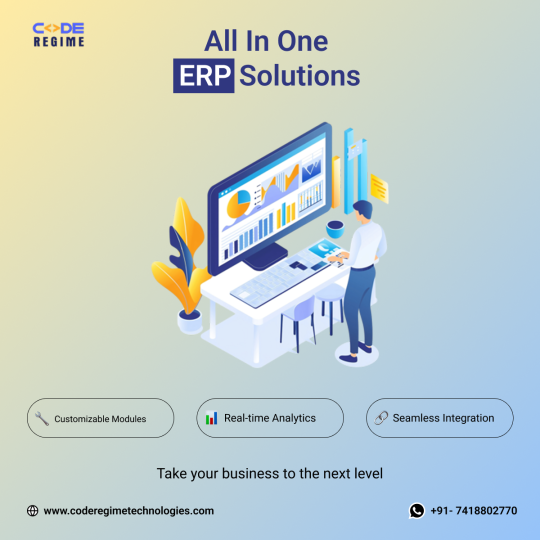
What You Gain with Our ERP Software? ✔ Automated Workflow – Say goodbye to manual bottlenecks and welcome seamless process automation. ✔ Data-Driven Decisions – Advanced analytics and reporting ensure that every decision is backed by real-time insights. ✔ Multi-Device Access – Whether you're on desktop, mobile, or web, our ERP keeps you connected. ✔ Integration-Friendly – Sync effortlessly with Gmail, web applications, CRMs, accounting software, and more. ✔ Security & Compliance – Your business data is protected with the highest security protocols. . . 🔹 Why Code Regime Technologies? We don’t just code; we craft scalable, AI-powered ERP solutions that grow with your business. Our team blends innovation with industry best practices to deliver future-proof software that gives you the competitive edge. . . 📩 Let’s Build the Future of Your Business Take the first step toward digital transformation. Get a free consultation today!
#businessgrowth#software development#mobile app development#blockchaintechnology#custom mobile app development company#branding#business#customappdevelopment#aiappdevelopmentcompany#cloneappdevelopment#erp software#erp system#erp#erp solution bd#crm software#businesssolutions
0 notes
Text
Benefits of customer relationship management

New technology comes and goes quickly. Every week, it seems like a new app or widget is released, promising to make businesses and their sales reps more productive, efficient, and effective. Although some sales technology has proven to be more useful than others, customer relationship management (CRM) software is here to stay. A properly implemented CRM software is an extremely useful tool. It records and manages all interactions and communications between your sales representatives and prospects and customers. It also assists in identifying opportunities that may require additional nurturing or follow-up (among many other things).
Maintain a centralized database for your sales organization:
"CRMs enable your entire sales organization to keep all prospect information for any length of time in a centralized database. This enables quick cross-team access as well as the ability to manage all information in one place. CRMs save reps time digging through files and records to find information about prospects in order to follow up and close deals.
Automate data entry:
With a CRM, your team will never have to spend time logging emails, calls, meetings, and interactions because the system will automatically collect and aggregate this information. Furthermore, a CRM enables reps to update all deals based on the stage they are in the system will then handle the rest (e.g., weighting, summation, visualization), making this process as efficient as possible for everyone involved.
Organize contact information:
CRMs enable your team to easily keep track of every contact (and their associated data), regardless of where they are in the buyer's journey. In fact, reps will be able to see if a contact has already visited your company's website, downloaded content, or spoken with another member of your sales team. Reps can also record notes from phone calls or email interactions with contacts and leads. What's the best part? Within the CRM, all of this information is always searchable.
Create sales reports: CRMs enable your team to collect and organize data about prospects and deals through reporting tools like sales dashboards and reports. best CRM software in India These enable sales reps to automate and manage their pipelines, deals, and contacts. They can also assess their personal performance and keep track of their goals and the work required to meet their quotas. Sales managers can use these sales reports to see how their team is doing in terms of meeting quotas and reviewing the number of closed deals. Vice presidents and other organizational leaders can also track the amount of revenue generated.
#crm software#best crm software in india#marketing automation tools#sales crm software#lead management software#crm lead management software#marketing automation tools in india#top crm software in india#crm software companies in india#crm system software
0 notes
Text
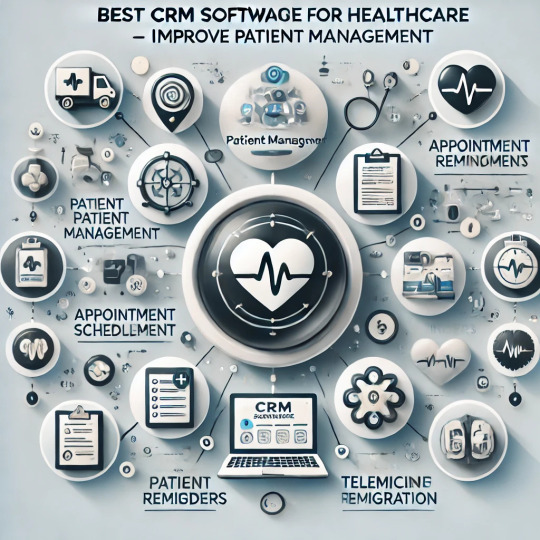
Discover the best CRM software for healthcare to enhance patient management, streamline communication, and improve operational efficiency. Learn how advanced healthcare CRM solutions help hospitals, clinics, and medical practices improve patient engagement and care coordination.
#Healthcare CRM software#best CRM for healthcare#patient management system#medical CRM#hospital CRM solutions#clinic management software#healthcare technology#CRM for doctors#digital patient management#healthcare automation.
0 notes